On May 14, Nikkei Asia reported that Samsung Group (Korea) will start construction of a chip development center in Yokohama city (Japan).
Big moves
The estimated investment cost for the center is about 222 million USD. This investment is quite small compared to Samsung's recent investments to expand its semiconductor manufacturing operations, typically the group's plan to develop a semiconductor manufacturing complex in Korea worth up to 230 billion USD. Or Samsung also invested in a semiconductor manufacturing plant worth tens of billions of USD in the US.
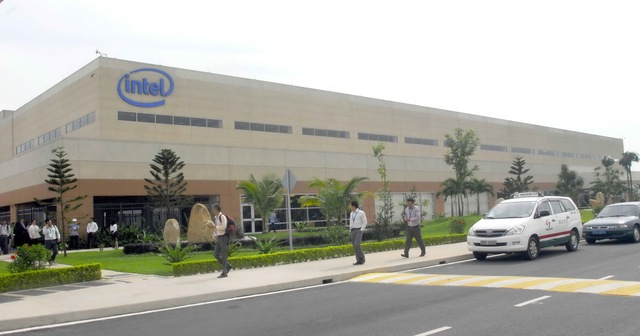
Intel chip assembly and testing factory in Ho Chi Minh City
However, the center is important in promoting cooperation between Korea and Japan in the semiconductor industry, when not long ago the two countries still had barriers to each other in semiconductor materials. In recent years, the US has made efforts to bring Japan and Korea together, one of the goals of which is to work together to restructure the global semiconductor supply chain. This effort comes amid the US-China trade conflict and the ongoing tension between the two countries.
In addition, Taiwan has continued to play an important role in the global semiconductor supply chain. As of last year, Taiwan Semiconductor Manufacturing Company (TSMC) alone accounted for more than 50% of the global semiconductor manufacturing market share. According to Fortune magazine, TSMC accounted for 90% of the advanced semiconductor manufacturing market share. Most of TSMC's factories are located in Taiwan and mainland China.
Meanwhile, the situation in the Taiwan Strait continues to be tense, and Washington has repeatedly warned of the possibility of Beijing using force to unify Taipei. If that happens, the global semiconductor market will be severely disrupted and have a long-term impact on the US economy . Therefore, the US's coordination with its allies and partners to restructure the semiconductor supply chain is also aimed at minimizing long-term risks.
Since last year, South Korea has also increased cooperation with the US to restructure the global semiconductor supply chain. In particular, Samsung has begun building a semiconductor factory with an investment of up to 17 billion USD in Texas (USA) and may expand its investment to build a total of 11 chip factories also in Texas with a total investment of up to nearly 200 billion USD.
The US has also signed a memorandum of understanding with India on establishing a semiconductor supply chain, which experts see as an opportunity for both countries to reduce their global dependence on China, according to The Economic Times. The memorandum aims to establish a bilateral cooperation mechanism on restoring and diversifying the semiconductor supply chain based on the CHIPS Act that the US passed to enhance its semiconductor capabilities.
Vietnam mark
These factors, along with the general shift in the global production chain after the Covid-19 pandemic, have seen Southeast Asian countries as the destination of the shift. Earlier this year, Nikkei Asia reported that US computer maker Dell aims to stop using chips made in China by 2024. In addition to chips, Dell has asked suppliers of other components such as electronic modules and printed circuit boards, as well as product assemblers to help prepare capacity in countries outside China, such as Vietnam . International media also reported that Apple plans to expand some of its production to Vietnam .
Meanwhile, CNBC recently cited some analysis that Vietnam and India have emerged as two potential destinations for the process of shifting the semiconductor component production chain. By April, Bloomberg reported that Vietnam , Thailand, Cambodia and India are taking advantage of the US's moves to secure their semiconductor supply chains.
Potential and risks
According to Professor Dapice, sales of the semiconductor market may not explode again this year, because many people have bought more electronic and technological devices during the Covid-19 period for work. However, the prospect of semiconductors in the coming years is that they will grow strongly due to the development of cloud computing, artificial intelligence and the Internet of Things. However, there is also a risk that many countries are racing to launch support packages for local businesses producing semiconductors, causing a situation of oversupply.
Accordingly, US chip imports in February 2023 reached 4.86 billion USD, up 17% over the same period in 2022. Of which, imports from Asia accounted for 83%. Notably, Vietnam ranked 3rd in semiconductor chip exports to the US with a value of 562.5 million USD, up 74.9% over the same period in 2022. The value of chips exported from Vietnam to the US was only behind Malaysia (972.9 million USD, down 26.3%) and Taiwan (732 million USD, up 4.3%).
Responding to Thanh Nien on May 15, Professor David Dapice (economic expert at the ASH Center at the Kennedy School of Public Policy at Harvard University, USA) commented: "For a long time, chip production has mainly taken place in a few economies. Of which, Taiwan produces advanced chips and mainland China is behind Taiwan in both value and level of advancement. Chip packaging is mainly done in China but is gradually diversifying its sources to ASEAN and other places. Chip production is labor-intensive, so this industry is tending to move to places with low labor costs. Of course, machines and robots are being improved to reduce the labor content in this industry."
"In the current context, Vietnam exports a lot of electronic equipment, so it is easy to become the priority choice for chip packaging, which does not require complex logistics. The problem that Vietnam needs to solve is to increase training and improve the quality of human resources. In this aspect, Vietnam may not be able to surpass India, but it is completely capable of surpassing Cambodia and Thailand. Besides, Vietnam also has good logistics services and the potential to develop green energy, which are important factors," the expert assessed.
Source link


![[Photo] The 9th Party Congress of the National Political Publishing House Truth](https://vphoto.vietnam.vn/thumb/1200x675/vietnam/resource/IMAGE/2025/6/24/ade0561f18954dd1a6a491bdadfa84f1)

![[Photo] General Secretary To Lam meets with the Group of Young National Assembly Deputies](https://vphoto.vietnam.vn/thumb/1200x675/vietnam/resource/IMAGE/2025/6/24/618b5c3b8c92431686f2217f61dbf4f6)

![[Photo] Close-up of modernized Thu Thiem, connecting new life with District 1](https://vphoto.vietnam.vn/thumb/1200x675/vietnam/resource/IMAGE/2025/6/24/d360fb27c6924b0087bf4f288c24b2f2)

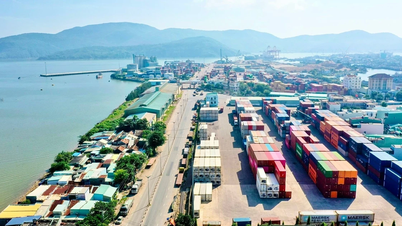



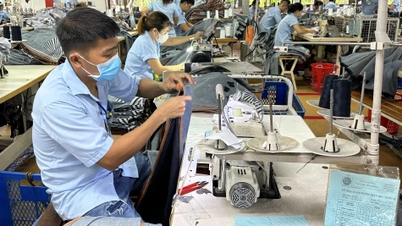



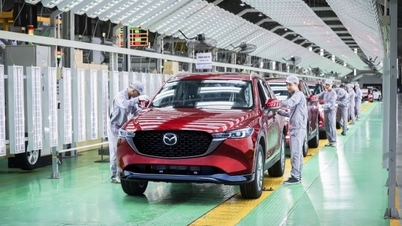


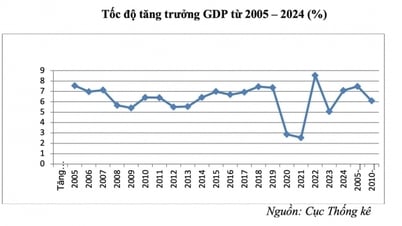












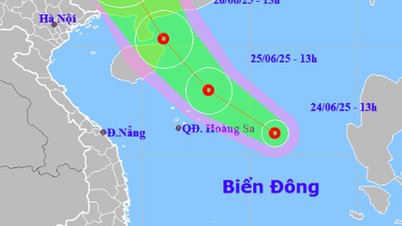
















































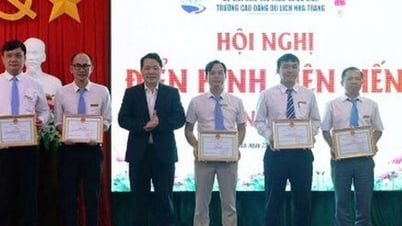





























Comment (0)